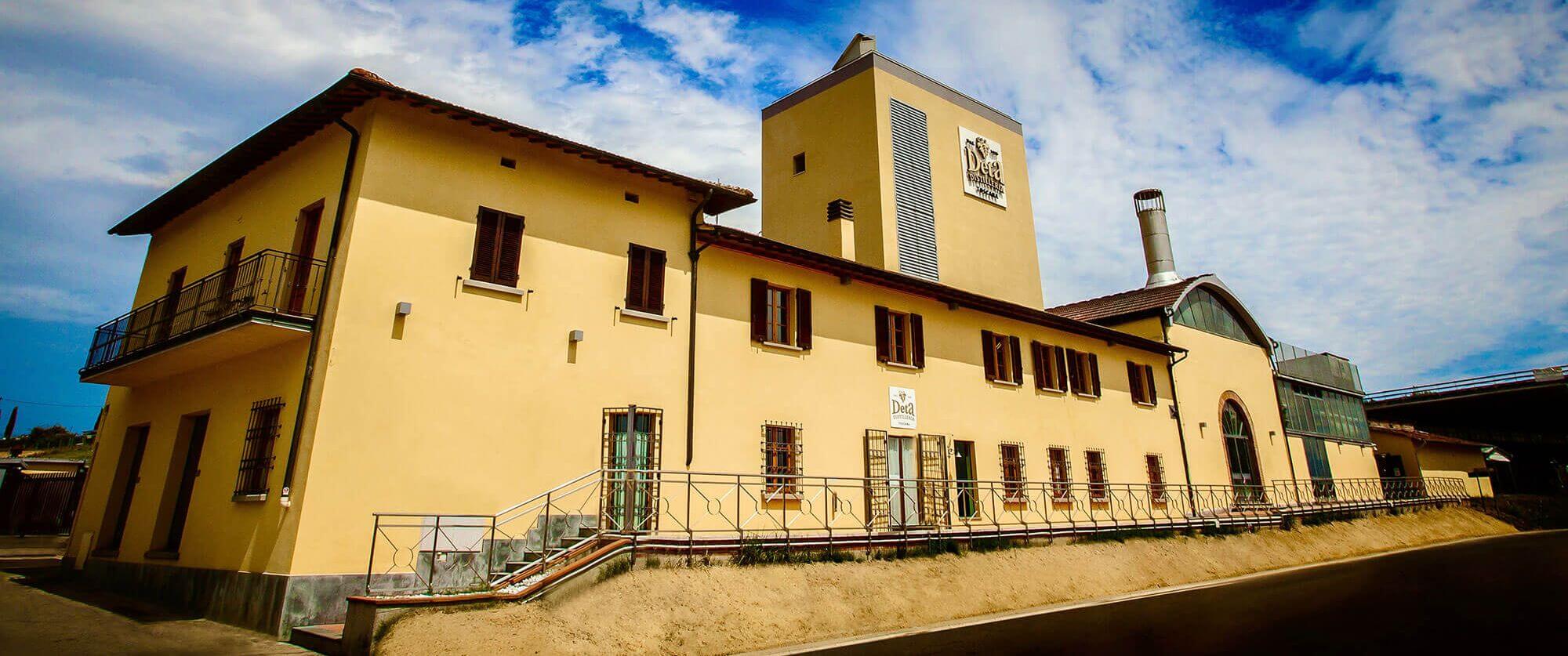
The history of Distilleria Deta began in 1926, when the family of the marquis Torrigiani of Santa Cristina founded a small distillery in Barberino Val d’Elsa, now Barberino Tavarnelle, among the hills of Chianti in the heart of Tuscany between the Florence and Siena provinces.
Post World War II period
In the post World War II period, Angelo Gianchecchi took the reins of the company, then called “Lo Stillo”. The distillery quickly became a point of reference for the surrounding Tuscan wineries, earning a spot among the fierce competitors thanks to production techniques capable of combining skill and experience with respect for the organoleptic properties of the raw materials.
Founded in 1978
Armed with a solid tradition focused on production quality, a determined Luigi Forni and his daughter Annamaria founded Distilleria Deta in 1978.
On the wave of the industrial and economic development of those years, new and important investments were undertaken, specifically involving the modernisation of the production systems and the creation of a wastewater purification system. These changes allowed Distilleria Deta to demonstrate that they were up with the times where other competitor companies in the territory were approaching the point of having to close their doors.
Courage, tradition and passion for their work led to the growth of Distilleria Deta so that they are now one of the major business partners of Tuscan wineries and primary companies that make up the Italian winery world.

2017: The acquisition
In July 2017, Distilleria Deta joined the “Mazzari Group” after the entire share capital was acquired by Distillerie Mazzari S.p.A, the global leader in Natural Tartaric Acid production and an important organisation in the Bioethanol production sector, as well as in the production of ethyl alcohol for food and industrial use, spirits and Brandy.
Distilleria Deta‘s operations today focus primarily on processing wine-making products and subproducts (marc, wine lees and wine) for the production of Grappa, Alcohol for food and industrial use, Wine Distillate and Brandy.
There is also production of Calcium Tartrate, which constitutes the raw material for the production of Natural Tartaric Acid, as well as grape seeds used by the oil production industry.


